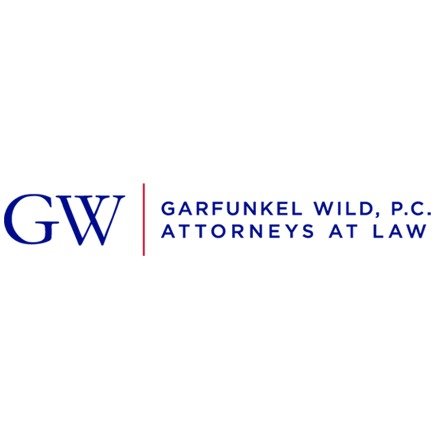Best Sanctions & Export Controls Lawyers in New York
Share your needs with us, get contacted by law firms.
Free. Takes 2 min.
Or refine your search by selecting a city:
List of the best lawyers in New York, United States
About Sanctions & Export Controls Law in New York, United States
Sanctions and export controls law governs how individuals and businesses in New York, United States can conduct international trade, financial transactions, and the transfer of goods, technology, and services across borders. Laws in this field aim to protect national security, support foreign policy objectives, and prevent the proliferation of weapons or the support of sanctioned entities, individuals, and countries. In New York, a global hub for finance and trade, compliance with these regulations is essential for anyone involved in international commerce.
Why You May Need a Lawyer
If you are engaged in cross-border transactions, work with foreign clients, ship products internationally, or provide technology to overseas partners, you may encounter complex United States and international sanctions or export control laws. Lawyers specializing in this area can help with:
- Assessing whether a planned transaction or client relationship is permitted
- Navigating investigations from regulatory agencies such as OFAC, BIS, or New York state authorities
- Responding to potential violations and minimizing legal exposure
- Conducting internal compliance reviews and implementing compliance programs
- Securing licenses or authorizations when required for exports, re-exports, or financial dealings
- Offering guidance on voluntary self-disclosures if a possible violation has occurred
- Representing you in administrative or criminal proceedings
Legal assistance can help you avoid costly penalties, criminal charges, and business disruptions.
Local Laws Overview
While sanctions and export control regulations primarily originate at the federal level, certain aspects are particularly important for entities operating in New York:
- Federal Laws: The Office of Foreign Assets Control (OFAC) governs most sanctions programs, while the Bureau of Industry and Security (BIS) oversees export controls on dual-use goods and technology. The International Traffic in Arms Regulations (ITAR) regulate military items. These laws apply to all U.S. persons, including those in New York.
- State Enforcement: New York State agencies, district attorneys, and the Department of Financial Services may enforce federal rules or initiate parallel actions for violations that occur within the state.
- Banking and Finance: As a major financial center, New York-based banks and financial institutions are subject to strict anti-money laundering and sanctions compliance checks.
- New York Businesses: Companies operating in or out of New York must screen customers, clients, and third parties against restricted party lists and follow U.S. export control laws for overseas deals or shipments.
- International Transactions: New York courts may have jurisdiction over disputes arising from sanctions compliance, and federal authorities often investigate violations with a New York connection due to the volume of international business conducted in the state.
Frequently Asked Questions
What is the difference between sanctions and export controls?
Sanctions are restrictions or prohibitions on dealings with specific countries, entities, individuals, or sectors, typically for national security or foreign policy reasons. Export controls regulate the transfer of certain goods, software, and technology to foreign entities or countries, often based on the item’s technical characteristics or destination.
Who enforces sanctions and export controls in New York?
At the federal level, the U.S. Department of the Treasury's Office of Foreign Assets Control (OFAC) and the Department of Commerce's Bureau of Industry and Security (BIS) are the primary enforcers. The U.S. Department of State oversees military-related items. New York state agencies and local authorities may assist or independently act if local laws are violated.
What types of businesses are affected by these laws?
Financial institutions, importers, exporters, technology firms, logistics providers, manufacturers, and companies offering overseas services are commonly affected, as are individuals engaging in cross-border activity.
Do I need a license to export goods or technology from New York?
It depends on the type of item, its destination, the end-user, and its intended use. Certain controlled or dual-use items require an export license from BIS or another relevant agency.
What are the penalties for violating sanctions or export controls?
Penalties can be severe, including hefty civil fines, criminal charges, loss of export privileges, forfeiture of goods, and reputational damage to businesses and individuals.
What should I do if I suspect a violation?
Contact an experienced sanctions and export controls attorney immediately. In some cases, voluntary self-disclosure to the authorities can mitigate penalties.
Are there exemptions or general licenses available?
Yes. Specific exemptions and general licenses may allow certain activities otherwise prohibited by sanctions or export controls. These are issued under precise conditions and often require legal analysis to interpret.
Can I do business with someone in a sanctioned country if they are not on a restricted list?
Not necessarily. Even if an individual or entity is not named, any dealings with that country may be restricted under broader sanctions programs. Legal review is essential before proceeding.
How do New York's financial regulations interact with federal sanctions?
New York’s robust financial regulatory environment means banks and other institutions often have additional compliance obligations and are regularly examined for sanctions adherence. Federal and state rules must be followed in parallel.
How often do the laws and lists change?
Sanctions programs and export control lists can change frequently and with little warning, especially in response to geopolitical developments. Staying up-to-date is critical for compliance.
Additional Resources
For further information, you may explore these organizations and resources:
- U.S. Department of the Treasury - Office of Foreign Assets Control (OFAC)
- U.S. Department of Commerce - Bureau of Industry and Security (BIS)
- U.S. Department of State - Directorate of Defense Trade Controls (DDTC)
- New York State Department of Financial Services
- Local bar associations and international trade organizations
- Trade compliance professionals and legal practitioners focusing on sanctions and export controls
Next Steps
If you believe you may be affected by sanctions or export control laws in New York, consider taking the following steps:
- Assess your business activities and cross-border transactions for potential exposure
- Consult with a lawyer specializing in sanctions and export controls to review your compliance obligations
- Implement or update your compliance program, including training, internal controls, and screening procedures
- Maintain records of your compliance efforts and transactions involving foreign parties
- If contacted by regulators or if you discover a potential issue, seek legal counsel before responding
- Stay informed about changes in laws, regulations, and government lists
Early engagement with an experienced legal professional can help you avoid violations, minimize risk, and protect your ability to do global business from New York.
Lawzana helps you find the best lawyers and law firms in New York through a curated and pre-screened list of qualified legal professionals. Our platform offers rankings and detailed profiles of attorneys and law firms, allowing you to compare based on practice areas, including Sanctions & Export Controls, experience, and client feedback.
Each profile includes a description of the firm's areas of practice, client reviews, team members and partners, year of establishment, spoken languages, office locations, contact information, social media presence, and any published articles or resources. Most firms on our platform speak English and are experienced in both local and international legal matters.
Get a quote from top-rated law firms in New York, United States — quickly, securely, and without unnecessary hassle.
Disclaimer:
The information provided on this page is for general informational purposes only and does not constitute legal advice. While we strive to ensure the accuracy and relevance of the content, legal information may change over time, and interpretations of the law can vary. You should always consult with a qualified legal professional for advice specific to your situation.
We disclaim all liability for actions taken or not taken based on the content of this page. If you believe any information is incorrect or outdated, please contact us, and we will review and update it where appropriate.
Browse sanctions & export controls law firms by city in New York
Refine your search by selecting a city.

















